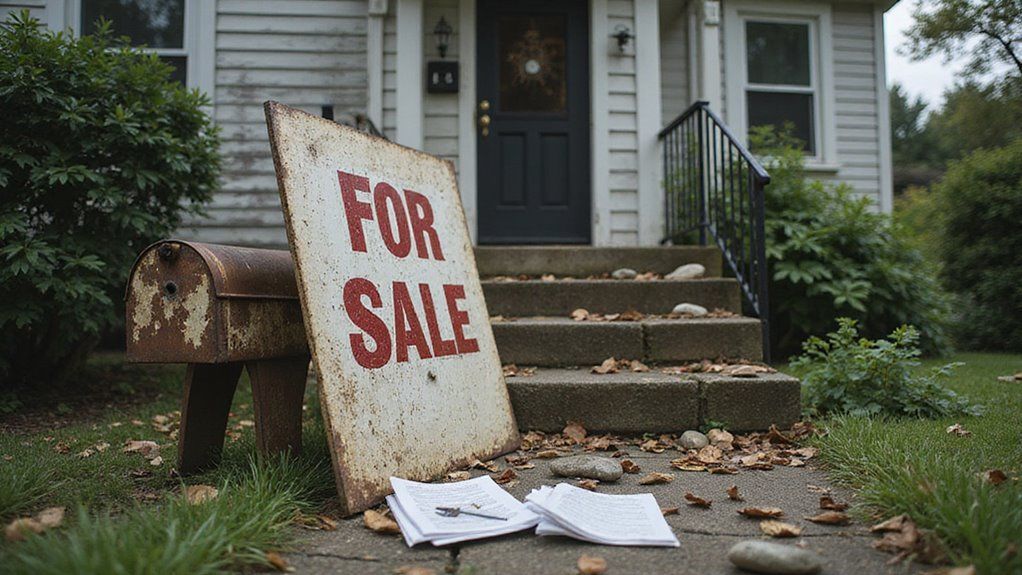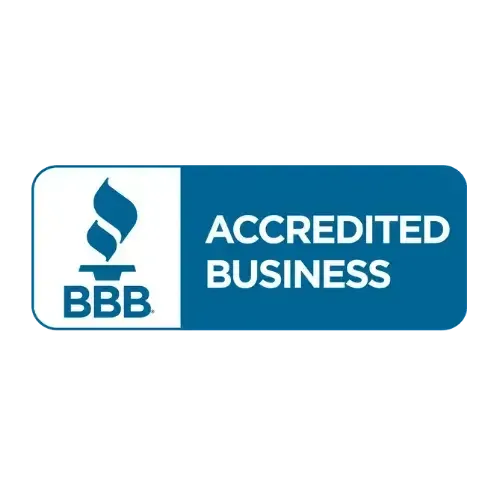How Do You Avoid Probate on a Home?

Imagine watching your family struggle through months of court battles over your home. Losing a loved one brings enough grief without adding legal headaches and thousands in probate costs. The court process can drain your estate’s value while keeping assets frozen. Fortunately, several simple legal tools can protect your home from probate entirely.
You can avoid probate on your home through several proven methods like joint ownership with rights of survivorship, creating a revocable living trust, or making lifetime gifts. These strategies help transfer property ownership before death, bypassing the court system completely.
In this blog I will explore everything related to avoiding probate on your home.
What Is Probate and Why Should You Avoid It?
Probate is a court process that transfers assets after death. You should avoid it because it creates delays, expenses, and public exposure for your heirs.
This legal process can take months or years in Pennsylvania while your family can’t access your property without court approval. Your estate details become public record during probate proceedings.
Typically, probate costs between 4% to 7% of your home’s value in various fees. These resources could otherwise go directly to your beneficiaries.
Through proper estate planning, you can protect your loved ones from unnecessary waiting periods and financial strain. Furthermore, probate avoidance strategies help maintain privacy while ensuring quick inheritance transfers.
How Much Does Probate Cost for a Home?
Probate costs typically range from 3-7% of a home’s value. These expenses add up quickly when settling an estate.
Attorney fees usually amount to 3-5% of the total estate value. Court filing fees vary by county but generally start at $200-$500.
Executors receive compensation of approximately 3-5% as well. Additional costs include property appraisals and debt settlements.
Many families find these expenses surprising. As a result, more homeowners now explore probate avoidance strategies.
These legal alternatives help preserve more inheritance for beneficiaries. Setting up proper estate plans today protects your family’s financial future tomorrow.
Sell Your House Fast in Pennsylvania Without Expensive Repairs, Junk Removal, or Cleaning!!
We buy houses for cash in Pennsylvania! We will make you a Fast, Fair, Cash Offer To Buy Your House As-Is. There’s No Obligation To Accept. We are here to take the hassle out of selling your home.
What Happens to Your Home During Probate?

Your home enters a legal process that controls its transfer to heirs after your death. The executor must pay all debts and taxes from estate assets before distributing property. Beneficiaries typically wait months or even years to receive their inheritance according to probate law.
Court disputes between heirs can extend this timeline significantly.
These delays often create uncertainty for your loved ones during an already difficult time. Meanwhile, ongoing costs like attorney fees and court expenses reduce the estate’s value. As a result, your beneficiaries may receive less than you intended.
What Are the Most Common Ways to Avoid Probate?
You have several proven strategies to keep your Pennsylvania home out of probate court. Joint ownership with rights of survivorship, revocable living trusts, and lifetime gifts each offer distinct advantages depending on your situation.
Understanding how these methods work will help you choose the most effective approach for transferring your property to your heirs.
Joint Ownership with Rights of Survivorship
Adding a co-owner with survivorship rights to your deed lets your Pennsylvania home skip probate. When you die, the property transfers directly to the surviving owner without court involvement. This strategy helps maintain your control while alive.
Before choosing this option, understand the drawbacks. You’ll no longer have complete authority over property decisions. The co-owner’s creditors could potentially place liens on your home.
Any relationship changes might create complications later. Additionally, you can’t reverse this decision without the co-owner’s agreement. Gift tax consequences may apply when adding someone to your deed.
Revocable Living Trusts
A revocable living trust moves your Pennsylvania home into a legal entity you control. This arrangement lets your property skip probate when you die. Proper setup requires retitling your property deed from your name to the trust’s name. You keep full control during your lifetime.
Your successor trustee will transfer the property directly to beneficiaries after your death. The law allows this process to occur without court involvement. This protection saves your family from probate delays and costs. It also maintains your privacy throughout the process.
An attorney should create the documentation and guide you through transfer procedures.
Transfer-on-Death Deeds
Pennsylvania doesn’t recognize transfer-on-death deeds. These convenient probate-avoidance tools work in many states but not here. You’ll need to use other legal methods instead.
Pennsylvania law hasn’t adopted the Uniform Real Property Transfer on Death Act. Real estate can’t automatically pass outside probate using TOD deeds. This limitation requires different planning approaches for property owners. Many people mistakenly assume these deeds work universally.
Consider using revocable living trusts, joint ownership with rights of survivorship, or life estate deeds. Additionally, you might explore limited liability companies for real estate holdings. Professional legal advice can prevent wasted effort pursuing unavailable options.
Lady Bird Deeds
Pennsylvania law doesn’t recognize Lady Bird deeds. These special life estate deeds allow property owners to keep control while setting up automatic transfers upon death.
You’ll need different approaches to avoid probate in Pennsylvania. Consider establishing a living trust instead. This legal arrangement holds your property and transfers it to beneficiaries when you die.
Another option is adding joint owners with survivorship rights to your property. Both methods effectively bypass the probate process.
For the best solution, talk with a Pennsylvania estate planning attorney. They can assess your unique situation and recommend appropriate alternatives. Your family’s needs and inheritance protection should guide this important decision.
Lifetime Gifts
You can transfer your home to family members during your lifetime to avoid probate. This immediate transfer eliminates court processes after death.
However, this approach has several drawbacks to consider. You permanently lose all control and ownership rights to your property. Gift tax may apply when property value exceeds annual exemption limits. Your recipients will inherit your original purchase price as their tax basis. Additionally, their creditors could potentially claim the gifted property.
Medicaid may deny eligibility if you need long-term care within five years of the transfer. Before making this decision, seek advice from Pennsylvania estate planning professionals. They can help determine if lifetime gifting aligns with your overall financial goals and family situation.
Small Estate Exemptions
Pennsylvania allows small estates to skip regular probate through simplified procedures. Estates with personal property valued at $50,000 or less qualify for this exemption. You complete basic paperwork instead of going through full court proceedings. This saves significant time and money for beneficiaries.
The exemption applies only to personal property such as bank accounts and vehicles. Real estate typically doesn’t qualify under this exemption.
If the deceased’s home represents most of the estate value, you’ll need alternative probate avoidance strategies. As a result, families with property-heavy estates should explore other legal options.
How to Create a Living Trust for Your Home
Creating a living trust for your Pennsylvania home requires you to make strategic decisions about trust type, prepare proper legal documents, and formally transfer your property title.
You’ll need to designate trustees who’ll manage the assets and beneficiaries who’ll receive them after your death. Ongoing maintenance ensures your trust remains valid and continues to protect your property from probate.
Choosing the Right Type of Trust
You’ll need a revocable or irrevocable trust for your Pennsylvania home. Revocable trusts allow you to maintain control while you’re alive. You can change terms anytime and manage your assets freely.
These trusts don’t shield assets from creditors during your lifetime. In contrast, irrevocable trusts provide stronger asset protection. These trusts may reduce estate taxes for larger estates.
Once established, you can’t easily modify them. The protection comes with less flexibility. Your specific estate planning goals should guide this decision.
Consider your family’s needs and financial situation carefully. A Pennsylvania estate planning attorney can help determine which structure best serves your beneficiaries.
Required Legal Documents
A Pennsylvania living trust requires three key legal documents. You need a trust agreement naming yourself as trustee and your successors. The document must identify who’ll manage your property after death.
You also need a deed transferring your home’s title into the trust’s name. All documentation must comply with Pennsylvania law and include exact property descriptions.
Finally, complete beneficiary designation forms showing who receives each asset. As a result, your trust will effectively bypass probate.
An estate planning attorney can ensure correct execution of these documents. The properly established trust protects your family’s interests while serving their needs.
Transferring Property Title to the Trust
You must create and record a new deed to move your home into your trust. This legal document changes ownership from your name to the trust. The deed transfer prevents your home from going through probate after your death.
First, prepare a deed that names your revocable living trust as the property owner. Take this document to a notary public for official signature verification.
Then file the deed at your county recorder’s office to make it legally binding. Additionally, contact your insurance company to update your homeowner’s policy. Your mortgage lender should also receive notification about this ownership change.
Failing to complete the deed transfer will leave your property subject to probate proceedings regardless of your trust documents.
Selecting Trustees and Beneficiaries
Choose yourself as the initial trustee of your revocable living trust. You maintain full control over your assets while alive.
Select a reliable successor trustee to manage your trust after death. This person will distribute assets according to your wishes without court involvement.
For beneficiaries, clearly identify who receives your home after your passing. List specific names and exact percentages to prevent any future disputes. Be thorough in your designations.
Well-chosen trustees and beneficiaries help your loved ones avoid probate delays. Your careful planning ensures they receive their inheritance promptly. This fulfills your estate planning goals while protecting those you care about most.
Maintaining the Trust After Creation
You must perform regular maintenance to keep your trust effective. Update beneficiary designations when family situations change. Retitle new property into the trust promptly. Schedule annual reviews with your attorney. Verify all assets remain properly assigned to the trust.
Additionally, maintain detailed records of trust assets and transfers. Trust laws require proper documentation to protect asset transfers and beneficiary rights.
This ongoing attention safeguards your family’s inheritance. Regular maintenance ensures your estate planning goals remain intact over time.
Without proper upkeep, your trust may fail to function as intended.
Are There Tax Implications When Avoiding Probate?

Yes, avoiding probate has tax implications, though it doesn’t eliminate inheritance taxes. Pennsylvania collects inheritance taxes based on beneficiary relationships: spouses pay 0%, children 4.5%, and siblings 12%.
Gifting property while alive may trigger federal gift tax if you exceed annual exemptions. This could reduce your lifetime exclusion amount.
Trusts often help heirs by preserving step-up basis benefits.
For best results, seek professional guidance. A tax expert can structure property transfers that protect your family’s inheritance. They’ll help balance tax efficiency with your estate planning goals. As a result, your beneficiaries can receive maximum value from your assets.
How to Choose the Right Probate-Avoidance Strategy for Your Situation?
Selecting the right probate-avoidance strategy requires you to evaluate Pennsylvania’s specific legal options, your property’s value, and your family’s unique circumstances.
You’ll need to align your chosen method with your estate planning goals—whether that’s maintaining control, ensuring privacy, or simplifying asset transfer.
Working with a Pennsylvania estate planning attorney helps you navigate these factors and implement a strategy that protects your home and benefits your heirs.
Considering Your State’s Laws
Pennsylvania law limits your probate-avoidance options for real estate. The state doesn’t recognize transfer-on-death deeds or Lady Bird deeds for property transfers.
Pennsylvania’s probate code allows only certain methods to bypass court supervision. Revocable living trusts remain fully effective under state law. Joint ownership with survivorship rights transfers property automatically when one owner dies.
For smaller estates, Pennsylvania offers some relief. The small estate exemption applies only to personal property valued under $50,000. This exemption doesn’t help with real estate transfers. As a result, you must choose Pennsylvania-approved methods to protect your home and other assets.
Property Value Assessment
Your home’s value determines which probate-avoidance strategies make financial sense. Pennsylvania offers a simplified process for estates under $50,000, but this applies only to personal property, not real estate.
Probate for homes valued between $100,000-$300,000 typically costs $4,000-$21,000. This expense makes living trusts a worthwhile investment.
More valuable properties require thorough estate planning to protect beneficiaries from unnecessary costs.
First, determine your home’s current market value.
Then compare potential probate expenses against property succession tools. This comparison ensures you maximize what passes to loved ones.
Family Dynamics Considerations
Family dynamics significantly impact your estate planning strategy. Joint ownership puts assets at risk during co-owners’ legal problems. Any co-owner can legally force property sale against others’ wishes. Siblings often resent unequal financial contributions over time.
For blended families, trusts ensure fair distribution to all intended beneficiaries. Difficult relationships between heirs may require hiring a professional trustee. Pennsylvania law provides several options to address these complex situations effectively.
Professional estate planning attorneys help navigate these challenges while preserving family harmony.
Estate Planning Goals Alignment
Your probate-avoidance strategy must match your specific goals. A revocable living trust provides privacy by transferring assets confidentially outside court oversight.
Joint ownership with rights of survivorship offers lifetime control with automatic succession. Trusts protect vulnerable heirs through structured distributions.
The best method depends on your priorities. Federal law allows various probate-avoidance techniques with different benefits for different situations.
Consider whether speed, cost savings, or asset protection matters most to you. As a result, your family’s unique circumstances will determine the most effective approach.
Professional Assistance Requirements
You need professional help for probate-avoidance in Pennsylvania. An estate attorney protects your family’s future by ensuring legal compliance.
Trust documents must meet Pennsylvania standards and properly transfer property titles. Professional guidance prevents costly mistakes with joint ownership arrangements.
Attorneys help align beneficiary designations with your goals to avoid conflicts. Furthermore, legal experts ensure lifetime gifts comply with exemption rules.
Small estate procedures must qualify under current thresholds and documentation requirements. The investment in qualified legal help saves your loved ones from potential problems later. Proper assistance now creates lasting protection for your family’s assets.
Sell Your Home for Cash and Simplify Your Estate Planning with Pezon Properties
Pezon Properties buys homes for cash to simplify estate planning. We provide a fair cash offer within 24 hours and close according to your schedule. Your real estate becomes liquid assets that transfer easily to heirs.
This approach eliminates probate delays and court costs while keeping details private. You maintain control over asset distribution during your lifetime. The proceeds can fund trusts, gifts, or charitable contributions that match your estate planning goals.
Our company manages all repairs, paperwork, and closing costs. The entire process reduces stress and creates an efficient transition.
You’ll avoid probate fees, court appearances, and public disclosure of your estate details. Many sellers appreciate having immediate access to funds.
A Little About Pezon Properties
Pezon Properties is a local, family-owned home buying business that helps homeowners sell their properties quickly and easily without the stress of selling the traditional way.
We simplify the home selling process and eliminate the hassles that come with selling your home. You are provided with solutions, convenience, and a great customer experience. We are easy to work with and do fair, win-win deals.
We are not flippers or wholesalers looking to make a quick profit. We are from the Lehigh Valley and invest back into the community to make it a better place for us all to live. We have been working directly with our neighbors to buy homes since 2014.
Whether you are
tired of being a landlord, inherited a property that you do not want, are facing divorce or financial issues, or want to sell quickly without the headaches, reach out to us today and we will help you in any way we can.
484-484-0971.












